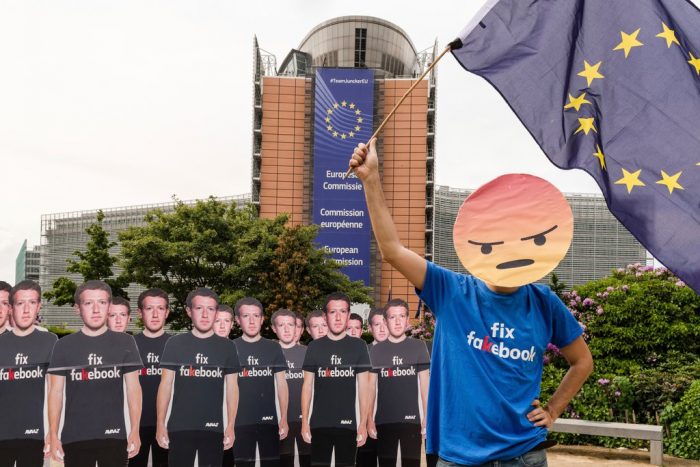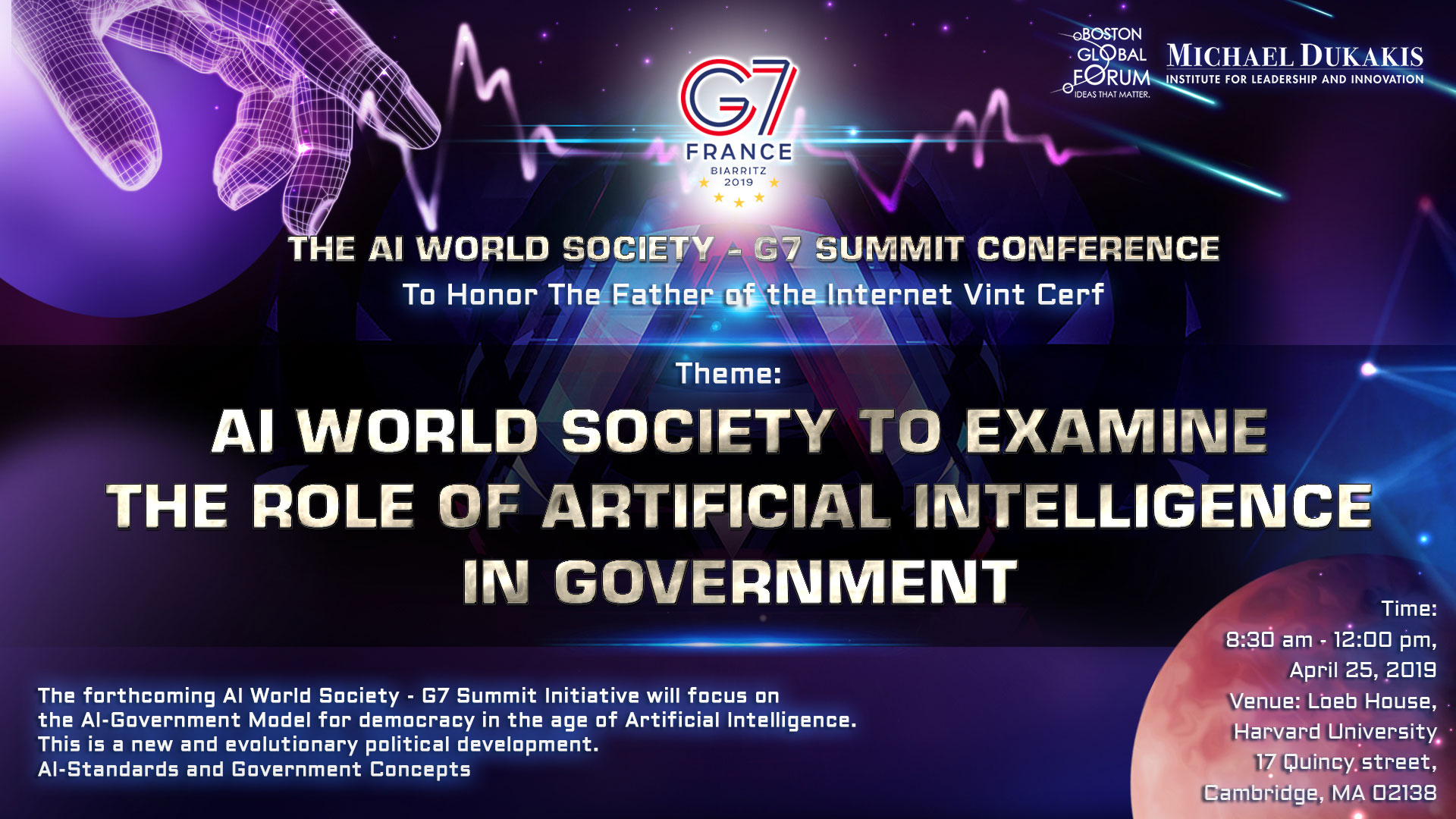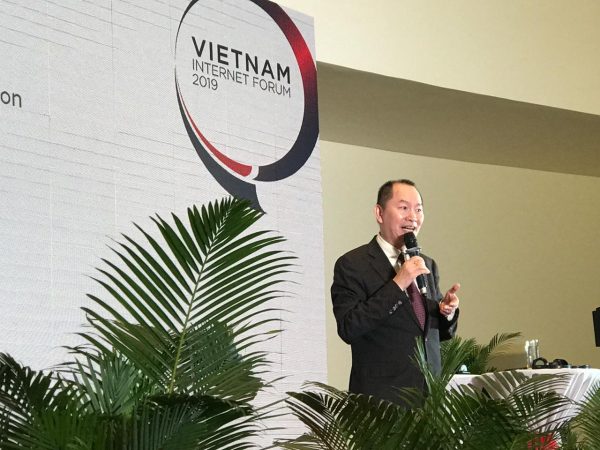
by BGF | Apr 8, 2019 | News
In general, AI advances are good for our society. In particular cases, they can be bad. Take Amazon’s Rekognition AI service. There are evidences that the service exhibited much higher error rates on images of darker-skinned women versus lighter-skinned men. Bloomberg reported that the dispute over Amazon’s software has been raging for almost a year. The American Civil Liberties Union said a test it ran of Rekognition AI falsely matched 28 members of Congress with mugshots and that those flagged were disproportionately people of color.

This gender and racial bias led to the call last Wednesday by 26 researchers, including Dr. Yoshua Bengio, this year’s winner of the Turing Award (the Nobel Prize equivalence in the field of Computing), for the company to stop selling Rekognition AI to police departments.
Although earlier, two Amazon officials, Matthew Wood and Michael Punke, responded to defend the fairness and correctness of the underlying algorithm, the concerned researchers argued that Amazon misrepresented the technical details for the work and the state-of-the-art in facial analysis and face recognition.
Amazon response is on the basis that the original study used to point out the bias of its AI software is not “reproducible”, questioning the correctness and generalizability of this study. In contrast, the researchers noted that IBM and Microsoft were able to reproduce the results and use them to improve their facial-recognition systems. We are still waiting to hear Amazon’s comments on this rebuttal.
This example of an AI service with potential bias highlights the importance of an ethical framework in the development and use of AI. This is exactly the topic of a roundtable hosted by the Artificial Intelligence World Society (AIWS) in Tokyo last month. We believe that regulation from the government level is needed to avoid any broad release of AI software that may have bias against any population.

by BGF | Apr 8, 2019 | News
The council lasted barely more than a week, after thousands of Google employees signed a petition calling for the removal of one member.

The Advanced Technology External Advisory Council was set up to “guide responsible development of AI” projects within Google. It had eight members, including technologists, philosophers, and economists, and was meant to hold four meetings a year, starting this month.
Concerns centered on the inclusion of Heritage Foundation president Kay Coles James on the panel. Her think tank is skeptical about climate change, and she has personally argued against the protection of LGBTQ rights. Another panel member, drone company CEO Dyan Gibbens, was also controversial given her company provides technology to the military— a sensitive subject within Google. So, Google is ending the council and going back to the drawing board.
The 2nd Layer of AI World Society (AIWS) is Ethics, and AIWS is building the AIWS Ethics Index. It will be announced late June 2019 at the AI Government Conference in Washington DC, and there will be an AIWS Distinguished Lecture on the Charter Day of United Nations at its headquarters in New York.

by BGF | Apr 8, 2019 | News
When Artificial Intelligence (AI) systems start getting creative, they can create great things – and scary ones. Take, for instance, an AI program that let web users compose music along with a virtual Johann Sebastian Bach by entering notes into a program that generates Bach-like harmonies to match them.

Google’s program analyzed the notes in 306 of Bach’s musical works, finding relationships between the melody and the notes that provided the harmony. Because Bach followed strict rules of composition, the program was effectively learning those rules, so it could apply them when users provided their own notes.
Now, though, AI technologies are getting advanced enough to be able to approximate individuals’ writing or speaking style, and even facial expressions. This isn’t always bad: A fairly simple AI gave Stephen Hawking the ability to communicate more efficiently with others by predicting the words he would use the most.
Giving researchers and companies freedom to explore, in order to seek these positive achievements from AI systems, means opening up the risk of developing more advanced ways to create deception and other social problems. It is an ultimate vision and goal of AI World Society (AIWS) to promote ethical norms and practices in the development and use of AI for transparency and fairness by avoiding human bias and deceived information.

by BGF | Apr 8, 2019 | News
As a “record-breaking” Hannover Messe draws to a close in Germany, organizers have reflected on a successful five-day event, which saw more than 215,000 visitors attend.

Artificial Intelligence (AI) in industry and robotics, the potential of the new 5G mobile communications standard for industrial applications, lightweight design, and the future of work in a time of increasing digitization, were this year’s most important topics at the world’s leading tradeshow for industrial technology.
Roughly 6,500 exhibitors from around the world presented solutions for the future of manufacturing and energy supply, including more than 500 examples of the deployment of artificial intelligence in industrial manufacturing, 5G applications, and solutions for the energy and mobility transitions.
In a rich array of Hannover Messe forums and conferences, experts from industry, government and the R&D community stimulated fruitful dialogue on topics such as Industry 4.0, AI and the future of work.
Especially, Boston Global Forum (BGF) and Michael Dukakis Institute for Leadership and Innovation (MDI) will also organize AI World Society – G7 Summit Initiative at Harvard University on April 25, 2019. This summit will focus on the AI-Government Model for democracy in the age of Artificial Intelligence. This is a new and evolutionary political development.

by BGF | Apr 8, 2019 | News
Artificial Intelligence (AI) is the next major breakthrough for our world. Businesses are including AI in their strategy to amplify results.

To apply AI to business and create positive outcomes, there are 5 most effective ways of turning your company into an AI-advocate including:
- Use AI for Customer Service such as AI bots for social channel;
- Automate the Boring Stuff with using narrow AI;
- Improve Management with AI evidence-based and data-generated insights;
- Next-Level Marketing and Advertising with AI to write and rewrite content, as well as automate time-consuming tasks;
- Better Personalization using Machine Learning to contextualize potential customers.
As you’re probably noticing already, the AI industry is constantly changing and shaping its angles. It’s moving forward, and our business environment and the world itself is rapidly adapting to every new perk that technology brings. AI is the next major breakthrough—just like the Internet or TV. AI will change the world, which has been initiated and forecasted by AI World Society (AIWS) and Michael Dukakis Institute for Leadership and Innovation (MDI). AI can be an important tool to serve and strengthen businesses, services, and customer experiences for a better social life.

by BGF | Apr 8, 2019 | News
On May 1, His Imperial Highness the Crown Prince will accede to the Imperial throne, and this new era name will be used from that day forward. I ask for the understanding and cooperation of the people on this. The government is taking all possible measures to prepare for this historic succession to the Imperial throne from a living Emperor — the first such instance in approximately 200 years — to take place smoothly, and for the Japanese people to celebrate the day with one accord.
Prime Minister was honored as a World Leader for Peace and Cybersecurity Award 2015 by Governor Michael Dukakis, Co-founder and Chairman of the Boston Global Forum, on Global Cybersecurity Day, December 12, 2015, at Harvard University Faculty Club. Prime Minister Abe delivered a speech on cybersecurity at this event.

by BGF | Apr 8, 2019 | Highlights
The success of AI depends on training data, whose process of collection may violate the end-users’ privacy if not done the right way. Privacy, therefore, should be one of the very first considerations when it comes to regulation of AI.

The New York Times recently published a post about how the US has started to pay serious attention to this matter. Last September, the Trump administration began working closely with the 36-nation Organization for Economic Cooperation and Development to create international guidelines for the design and use of artificial intelligence. “We’re focused on promoting an international environment that supports A.I. research and development and ensures the technology is developed in a manner aligned with our nation’s core civil liberties and freedoms,” said Michael Kratsios, deputy assistant to the president for technology policy.
The specific goal on the US side is a federal law that will “harmonize” data privacy rules in the United States and mesh enough with the European standard to avoid a more splintered marketplace. In the same sprit, the AI World Society (AIWS) initiative of the Michael Dukakis Institute for Leadership and Innovation also focuses on promoting ethical norms and practices in AI. We have published the AIWS Ethics and Practices Index which measures the extent to which a government’s AI activities respect human values and contribute to the constructive use of AI. We hope to work with the US government on this important matter which unquestionably will affect the future of our nation.

by BGF | Apr 6, 2019 | News
ALERT TO MEDIA: Coverage is invited.
To Register Contact: Dick Pirozzolo [email protected] or 1-617-959-4613
Vinton Cerf, one of the Fathers of the Internet, to receive World Leader in AI World Society Award
at AI World Society – G7 Summit Conference at Harvard University on April 25
He will speak on “Artificial Intelligence and the future of the Internet,”

AI World Society (AIWS) will host Vinton Cerf, a Father of the Internet, as part of its commitment to offer fresh ideas from the world’s most brilliant minds to the next G7 Summit to be held in Biarritz, Nouvelle-Aquitaine, France.
Cerf will speak at the AI World Society Symposium on AI-Standards and Legal Concepts:
8:30 am – 12:00 pm, April 25, 2019
17 Quincy Street, Cambridge, Massachusetts 02138
Advance registration is required for press credentials
Cerf, the Father of the Internet: Honored as World Leader in AI World Society (AIWS)
According to his biography by the Internet Hall of Fame Vinton G. Cerf, codesigned the TCP/IP protocols and architecture of the Internet, and once served as Chairman of Internet Corporation for Assigned Names and Numbers (ICANN).
Also, as vice president and chief Internet evangelist for Google since 2005, he is responsible for identifying new enabling technologies to support the development of advanced, Internet-based products and services from Google and is a public face for Google in the Internet world.
Cerf is the former senior vice president of Technology Strategy for MCI, where he helped guide corporate strategy development from the technical perspective. Previously, Cerf served as MCI’s senior vice president of Architecture and Technology, leading a team of architects and engineers to design advanced networking frameworks including Internet-based solutions for delivering a combination of data, information, voice and video services for business and consumer use.
Among those participating will be Governor Michael Dukakis, who will deliver the Opening Remarks
Arnaud Mentré, Consul General of France in Boston The French Perspective on Artificial Intelligence and the G7 Summit, which will be held in France on August 25–27, 2019.
Also speaking are:
Professor Thomas Patterson: AI World Society – G7 Summit Initiative
Professor Matthias Scheutz: Concepts for AIWS Standards
Paul Nemitz: Legal Concepts for AI – Layer 4 of AI World Society.
AI WORLD SOCIETY (AIWS) was created by The Boston Global Forum (BGF) to examine issues and developments centering on the role of AI in society.
The Boston Global Forum (BGF) is a not-for-profit think tank based in Boston, Massachusetts. Its mission is to bring together, in an open and accessible public forum, an eclectic and engaging spectrum of esteemed academic leaders, real-world experts, thought leaders, media experts and promising young leaders, who are dedicated to seeking peaceful solutions to the most contentious issues of our times.
An offshoot of The Boston Global Forum, The Michael Dukakis Institute for Leadership and Innovation (MDI) was born in 2015 with the mission of generating ideas, creating solutions, and deploying initiatives to solve global issues, especially focused on Cybersecurity and Artificial Intelligence.
Further details are available by contacting Mr. Tuan Anh Nguyen, Co-founder and Chief Executive Officer of The Boston Global Forum, and Director of The Michael Dukakis Institute for Leadership and Innovation.
Mr. Nguyen may be reached at [email protected].

by BGF | Apr 1, 2019 | News
On March 20 and 21, the Swedish Embassy in Vietnam, UNDP, and Hanoi Government organized the Vietnam Internet Forum. This is the second time the Forum, is held, with the first being in 2017.

Mr. Nguyen Anh Tuan, co-founder and CEO of the Boston Global Forum was invited as a speaker at the Vietnam Internet Forum.
He talked about AI World Society and AI-Government, and encouraged Vietnam to apply AI-Government.

In his talk, he introduced the Social Value Point (SVP) as a part of AI World Society to promote and recognize the contributions of citizens. SVP is actually substantially different from the Social Credit System of China. SVP protects the privacy rights of personal data, disagree with collect data without permission of citizens, and only save contribution of citizens to encourage and incentive good citizens. SVP also will be run by non-government organizations.

















